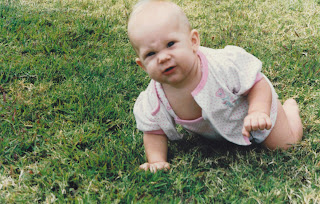Apposition, What?
ap·po·si·tion (āp'ə-zĭsh'ən)
n.
Grammar
A construction in which a noun or noun phrase is placed with another as an explanatory equivalent, both having the same syntactic relation to the other elements in the sentence; for example, Copley and the painter in The painter Copley was born in Boston.
Last week was one that left me feeling completely unqualified to teach my children. I mean, who's idea was this anyway? Thankfully I have now enlisted Wingnut to help me with some of the high school subjects (i.e. chemistry and advanced mathematics). He's a terrific resource and a regular font of knowledge and boy am I glad I have him around.
n.
Grammar
A construction in which a noun or noun phrase is placed with another as an explanatory equivalent, both having the same syntactic relation to the other elements in the sentence; for example, Copley and the painter in The painter Copley was born in Boston.
Last week was one that left me feeling completely unqualified to teach my children. I mean, who's idea was this anyway? Thankfully I have now enlisted Wingnut to help me with some of the high school subjects (i.e. chemistry and advanced mathematics). He's a terrific resource and a regular font of knowledge and boy am I glad I have him around.
High school chemistry is one thing, middle school grammar is another. We have been using Seton English for the last several years with some satisfaction. OJ and JP have hit on sections in their workbooks that have presented a challenge. I remember the eight parts of speech, concrete nouns, abstract nouns, direct objects, indirect objects, etc. I do not recall predicate nominatives, adverbial objectives, objective complements or appositives. Seton must be truly old school grammar. For the life of me, I can't imagine how any of this is helpful. I'm thinking of skimming over these sections and moving on to more concrete grammar, usage and mechanics. Unless there is anyone out there that can tell me how knowing this type of information is detrimental to my children's education, I'm going to save myself the agony of trying to coax my middle schoolers through this grammar confusion.
You see, even a veteran homeschool mom can feel inadequate at times.

Comments